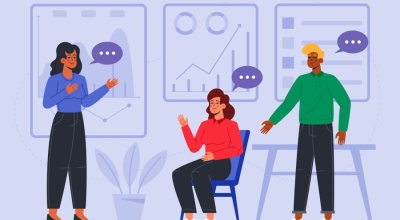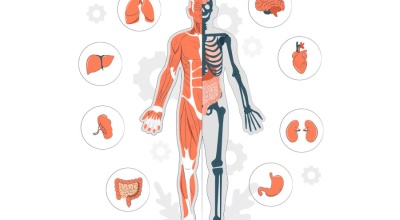Use the Vaccine Finder for information related to the coronavirus in your state or territory to find your health department. Many locations require an appointment to get a vaccine. VaccineFinder.org is a free, online service where users can search for locations that offer vaccinations.
Vaccinated People Are Going to Hug Each Other
COVID-19 vaccines are effective at protecting you from getting sick. Based on what we know about COVID-19 vaccines, people who have been fully vaccinated can start to do some things that they had stopped doing because of the pandemic.
What’s Changed When You’ve Been Fully Vaccinated
Read More: Interim Public Health Recommendations for Fully Vaccinated
How Do I Get a Vaccine?
CDC makes recommendations for who should get the vaccine first, then each state makes its own plan.
Choose your state or territory below to find your health department:
Have You Been Fully Vaccinated?
People are considered fully vaccinated:
- 2 weeks after their second dose in a 2-dose series, like the Pfizer or Moderna vaccines, or
- 2 weeks after a single-dose vaccine, like Johnson & Johnson’s Janssen vaccine
If it has been less than 2 weeks since your shot, or if you still need to get your second dose, you are NOT fully protected. Keep taking all prevention steps until you are fully vaccinated.
Key Points
This is the first set of public health recommendations for fully vaccinated people. This guidance will be updated and expanded based on the level of community spread of SARS-CoV-2, the proportion of the population that is fully vaccinated, and the rapidly evolving science on COVID-19 vaccines.
For the purposes of this guidance, people are considered fully vaccinated for COVID-19 ≥2 weeks after they have received the second dose in a 2-dose series (Pfizer-BioNTech or Moderna), or ≥2 weeks after they have received a single-dose vaccine (Johnson and Johnson (J&J)/Janssen ).†
The following recommendations apply to non-healthcare settings. For related information for healthcare settings, visit Updated Healthcare Infection Prevention and Control Recommendations in Response to COVID-19 Vaccination.
Fully vaccinated people can:
- Visit with other fully vaccinated people indoors without wearing masks or physical distancing
- Visit with non-vaccinated people from a single household who are at low risk for severe COVID-19 disease indoors without wearing masks or physical distancing
- Refrain from quarantine and testing following a known exposure if asymptomatic
For now, fully vaccinated people should continue to:
- Take precautions in public like wearing a well-fitted mask and physical distancing
- Wear masks, practice physical distancing, and adhere to other prevention measures when visiting with non-vaccinated people who are at increased risk for severe COVID-19 disease or who have an non-vaccinated household member who is at increased risk for severe COVID-19 disease
- Wear masks, maintain physical distance, and practice other prevention measures when visiting with non-vaccinated people from multiple households
- Avoid medium- and large-sized in-person gatherings
- Get tested if experiencing COVID-19 symptoms
- Follow guidance issued by individual employers
- Follow CDC and health department travel requirements and recommendations
What’s Changed
If you’ve been fully vaccinated:
- You can gather indoors with fully vaccinated people without wearing a mask.
- You can gather indoors with unvaccinated people from one other household (for example, visiting with relatives who all live together) without masks, unless any of those people or anyone they live with has an increased risk for severe illness from COVID-19.
- If you’ve been around someone who has COVID-19, you do not need to stay away from others or get tested unless you have symptoms.
- However, if you live in a group setting (like a correctional or detention facility or group home) and are around someone who has COVID-19, you should still stay away from others for 14 days and get tested, even if you don’t have symptoms.
What Hasn’t Changed
For now, if you’ve been fully vaccinated:
- You should still take steps to protect yourself and others in many situations, like wearing a mask, staying at least 6 feet apart from others, and avoiding crowds and poorly ventilated spaces. Take these precautions whenever you are:
-In public
-Gathering with unvaccinated people from more than one other household
-Visiting with an unvaccinated person who is at increased risk of severe illness or death from COVID-19 or who lives with a person at increased risk - You should still avoid medium or large-sized gatherings.
- You should still delay domestic and international travel. If you do travel, you’ll still need to follow CDC requirements and recommendations.
- You should still watch out for symptoms of COVID-19, especially if you’ve been around someone who is sick. If you have symptoms of COVID-19, you should get tested and stay home and away from others.
- You will still need to follow guidance at your workplace.
What We Know and What We’re Still Learnings
- We know that COVID-19 vaccines are effective at preventing COVID-19 disease, especially severe illness and death.
- We’re still learning how effective the vaccines are against variants of the virus that causes COVID-19. Early data show the vaccines may work against some variants but could be less effective against others.
- We know that other prevention steps help stop the spread of COVID-19, and that these steps are still important, even as vaccines are being distributed.
- We’re still learning how well COVID-19 vaccines keep people from spreading the disease.
- Early data show that the vaccines may help keep people from spreading COVID-19, but we are learning more as more people get vaccinated.
- We’re still learning how long COVID-19 vaccines can protect people.
- As we know more, CDC will continue to update our recommendations for both vaccinated and unvaccinated people.
Until we know more about those questions, everyone — even people who’ve had their vaccines — should continue taking basic prevention steps when recommended.
Information and Resources
To learn more, visit:
- Coronavirus Checks from the Government
- Coronavirus Scams: What the FTC is Doing at ftc.gov/coronavirus
- Centers for Disease Control and Prevention at Coronavirus Disease 2019 (COVID-19)
- Coronavirus Precautions - How to Launder Clothes Guidance by Courtney Leiva at huffpost.com
Internet Video Education
The internet gives you access to countless products and services. At the same time, it can leave you open to scammers, hackers, and identity thieves. Learn experts' top tips for how to protect your information and your computer while online.
Step-by-Step Instructions
Developed by the Internet Education Foundation as part of its GetNetWise program.

Public Downloads
All items are free to view, share, and download.
Public Downloads - Español (Spanish)
When available, we provide all our content with a Spanish version in our public download section. You can find additional material from sources listed in all our articles.
Download Cyber Educational Security Videos and Games














